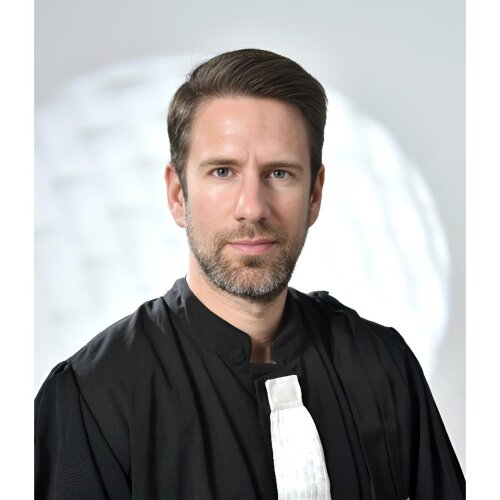Best Civil Rights Lawyers in Bucharest
Share your needs with us, get contacted by law firms.
Free. Takes 2 min.
List of the best lawyers in Bucharest, Romania
About Civil Rights Law in Bucharest, Romania:
Civil Rights Law in Bucharest, Romania protects individuals against any form of discrimination based on race, ethnicity, religion, gender, disability, and other protected characteristics. These laws aim to ensure equal treatment, opportunities, and protection of basic human rights for all residents of Bucharest.
Why You May Need a Lawyer:
There are various situations where seeking legal help in Civil Rights may be necessary. Some common scenarios include:
- Discrimination or harassment in the workplace or public spaces
- Denial of access to public services, education, or healthcare without justifiable reasons
- Violation of freedom of speech, expression, or association
- Unfair treatment by law enforcement or government officials
- Retaliation for exercising your civil rights
Local Laws Overview:
Understanding the key aspects of local laws related to Civil Rights in Bucharest, Romania is essential. Here are some important points to consider:
- The Romanian Constitution guarantees the equality of rights and prohibits any form of discrimination.
- The National Council for Combating Discrimination (CNCD) is the authority responsible for monitoring and enforcing Civil Rights laws.
- Employers must adhere to laws promoting workplace equality and preventing discrimination.
- Bucharest has various anti-discrimination organizations and legal clinics that can provide support and guidance.
Frequently Asked Questions:
1. What can I do if I experience discrimination in Bucharest?
If you experience discrimination, document the incidents, gather evidence, and consider filing a complaint with the National Council for Combating Discrimination (CNCD). It is advisable to seek legal advice to understand your rights and options.
2. How long do I have to file a complaint for discrimination?
In Bucharest, the general time limit to file a complaint with the CNCD is 6 months from the date of the discriminatory act. However, specific cases may have different time limitations, so consulting a lawyer is crucial.
3. What remedies can I seek for civil rights violations?
If your civil rights are violated, you may be eligible for remedies such as compensation for damages, public apologies, or the cessation of discriminatory practices. Legal actions can be taken to achieve these remedies.
4. Are there any free legal resources available in Bucharest for civil rights cases?
Yes, Bucharest provides free legal resources like legal aid clinics, NGOs specialized in Civil Rights, and organizations like the Romanian Institute for Human Rights. These entities can offer legal guidance and assistance at no cost or reduced fees.
5. Can I remain anonymous when reporting discrimination to the CNCD?
Yes, the CNCD allows individuals to file anonymous complaints. However, providing your identity may help in the investigation process, so it is recommended to consult a lawyer before deciding whether to remain anonymous or disclose your identity.
Additional Resources:
- The National Council for Combating Discrimination (CNCD) - https://www.cncd.ro/
- Romanian Institute for Human Rights - https://irdo.ro/en/
- Legal Aid Clinics in Bucharest - Contact your local law schools to inquire about available clinics.
Next Steps:
If you require legal assistance in Civil Rights, it is recommended to follow these steps:
- Document incidents and gather evidence of discrimination or civil rights violations.
- Consult a lawyer experienced in Civil Rights law.
- Determine the appropriate authority to file a complaint, such as the National Council for Combating Discrimination (CNCD).
- Keep record of all communication and correspondence related to your case.
- Consider seeking support from local anti-discrimination organizations or legal clinics.
Lawzana helps you find the best lawyers and law firms in Bucharest through a curated and pre-screened list of qualified legal professionals. Our platform offers rankings and detailed profiles of attorneys and law firms, allowing you to compare based on practice areas, including Civil Rights, experience, and client feedback.
Each profile includes a description of the firm's areas of practice, client reviews, team members and partners, year of establishment, spoken languages, office locations, contact information, social media presence, and any published articles or resources. Most firms on our platform speak English and are experienced in both local and international legal matters.
Get a quote from top-rated law firms in Bucharest, Romania — quickly, securely, and without unnecessary hassle.
Disclaimer:
The information provided on this page is for general informational purposes only and does not constitute legal advice. While we strive to ensure the accuracy and relevance of the content, legal information may change over time, and interpretations of the law can vary. You should always consult with a qualified legal professional for advice specific to your situation.
We disclaim all liability for actions taken or not taken based on the content of this page. If you believe any information is incorrect or outdated, please contact us, and we will review and update it where appropriate.










